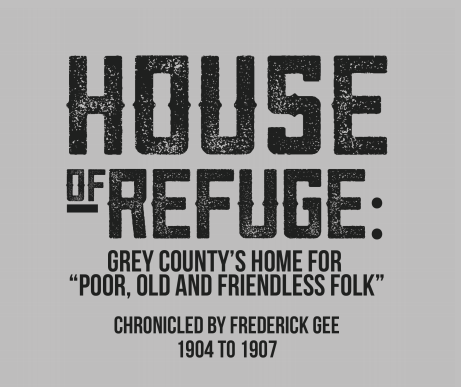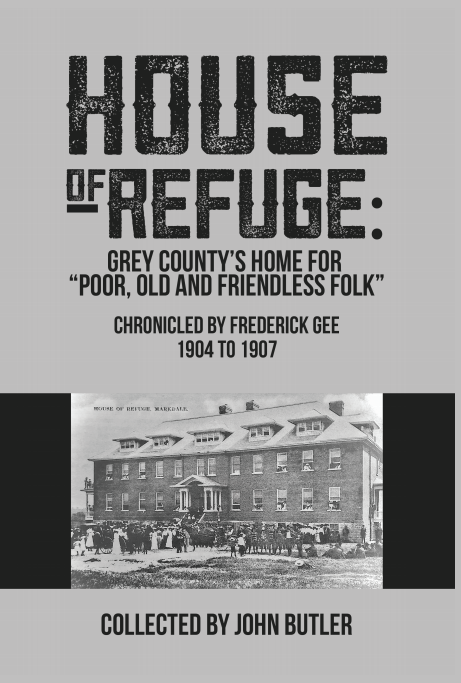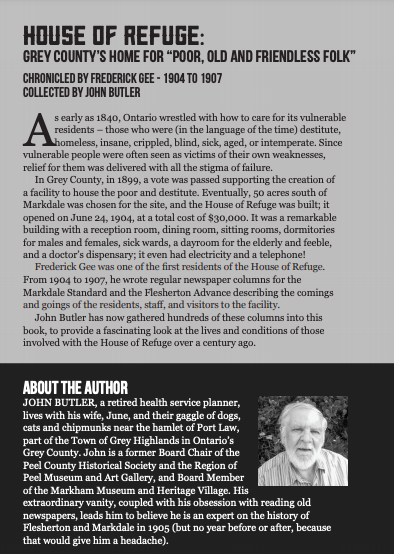Description
Built in 1904, just south of Markdale where Grey Gables is now located, the House of Refuge provided a residence for “the poor and destitute.” John Butler has collected resident Frederick Gee’s newspaper accounts of his life there from 1904 to 1907, providing an insider’s look at the comings and goings, staff and conditions in what was quite a modern building of its time.









Jeff Wilson –
It is such a shame that something as simple as time has made it impossible for Frederick Gee and his co-author John Butler to meet in person, but it certainly hasn’t adversely affected their ability to combine for this wonderful read.
The late Fred Gee was a career British military man, who left his regimented life to enter the vastly different world of farming in Artemesia Township. He soon found he had made the wrong career move, failing as a farmer and later injuring himself building part of the local railway line. Fortunately, the province of Ontario had instituted an act where the mentally, physically and financially destitute could live and function, through the counties. As a result of this series of events, the House of Refuge, Markdale, ON came to be.
Despite his unintentional life’s self-sabotage, Gee was a highly educated and very colorful individual. He took capably to his role as the facility’s correspondent to the Flesherton Advance and Markdale Standard, chronicling the first years of the House, which was not only a place of Refuge for the “inmates”, but a place where they could work for their keep as capabilities allowed.
Where time has made Gee’s chronicles confusing to the modern mind, his friend and co-author of over a century later, John Butler, has filled in the blanks and revealed a world as rich and fertile as the House of Refuge growing fields.
My favorite story: A male inmate receives letters from a female Michigan suitoress, who later comes to visit him, all her worldly goods in hand. Meeting him in the House’s field at harvest time, the 3 score and 10+ aged lady becomes irate when she discovers he has no farm or property, eventually leaving the premises, presumably to find another local candidate for matrimony. As she departs, the inmate offers a last dry salutation, saying she might be able to find lodging at the home.
And many more such anecdotes await you, as you crack “House of Refuge”. I am in the midst of reading it for a second time and highly recommend it.